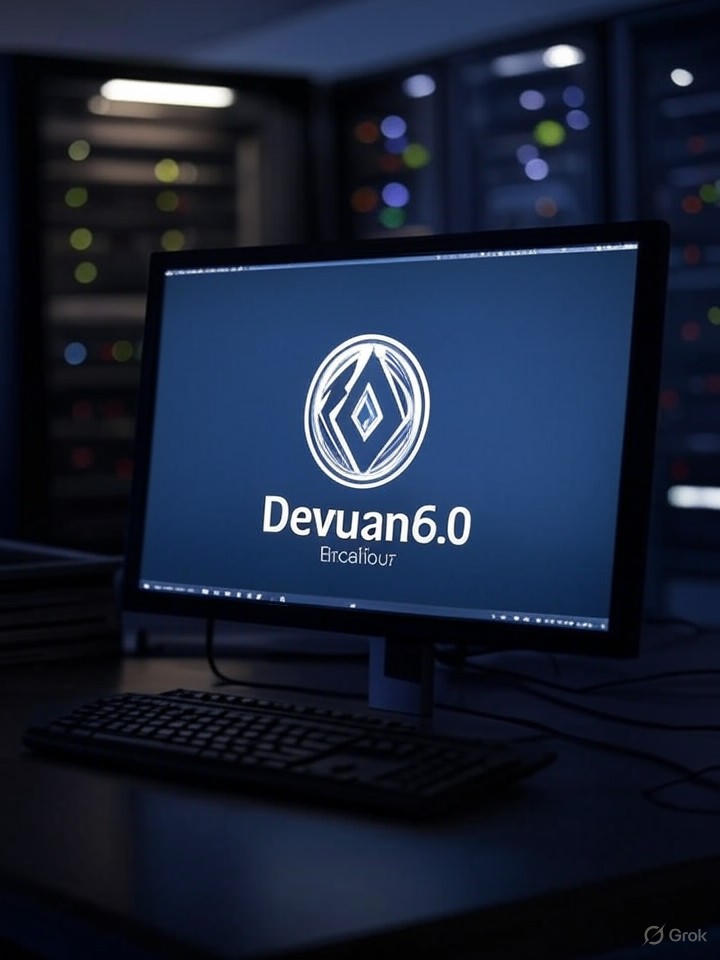UPDATE: The open-source community is buzzing with excitement as Devuan 6.0, codenamed “Excalibur,” has just been released on November 3, 2025. This major update offers a systemd-free alternative to Debian 13, making a significant impact for developers and system administrators seeking flexibility in their operating systems.
This release arrives at a critical time when many in the Linux community are pushing back against the increasing complexity of systemd. Devuan 6.0 caters to those who prioritize choice, offering options like SysVinit, OpenRC, and Runit. The new version integrates the Linux 6.12 LTS kernel, ensuring long-term support that is essential for enterprises focused on stability over cutting-edge features.
According to Phoronix, Devuan 6.0 continues to uphold its core philosophy by stripping out systemd dependencies while maintaining access to Debian’s extensive package repository. This allows users to engage with familiar software ecosystems without the drawbacks of systemd’s monolithic architecture, marking a significant shift for those disillusioned by current trends in Linux development.
Background: Devuan has a storied history, having been initiated in 2014 by veteran Debian developers who opposed the decision to adopt systemd as the default init system. Critics argued this move added unnecessary complexity and undermined modularity. The new release builds on Devuan’s legacy, incorporating mandatory /usr merge—a filesystem change that aligns with modern Debian practices but requires careful migration for existing users.
For those in technical fields, Devuan 6.0 offers a lightweight footprint and customizable boot processes. The absence of systemd allows for faster boot times in certain configurations, appealing to embedded systems engineers and those managing containerized workloads. Additionally, the integration of PipeWire for audio handling enhances multimedia capabilities, making it a viable choice for desktop users who wish to avoid systemd’s resource demands.
Compatibility and Adoption: Devuan supports a wide range of architectures, including x86_64, arm64, and even older i386, broadening its appeal in sectors such as IoT and server farms. However, adoption challenges remain, as some upstream packages expect systemd’s presence, necessitating ongoing community effort to provide patches or alternatives.
As noted by Phoronix, Devuan 6.0 launches amidst the backdrop of the upcoming Linux 6.18 kernel release candidates. While mainstream distributions continue to innovate around systemd, Devuan offers a vital counterpoint, emphasizing the importance of diversity within the Linux ecosystem. For enterprises wary of vendor lock-in or those seeking minimalist setups, this release underscores the enduring relevance of choice in open-source software.
Looking Forward: Devuan’s maintainers indicate a commitment to aligning with Debian’s release cycle, potentially incorporating features from future kernels for enhanced hardware support. As the emphasis on “init freedom” remains a core tenet—first articulated in its inaugural release—Devuan positions itself as an essential player in the evolving landscape of open-source software.
Industry analysts predict that as cloud-native computing expands, alternatives like Devuan could become more prominent in specialized niches, particularly in security-focused deployments where minimizing attack surfaces is critical.
In summary, Devuan 6.0 is more than just a software update; it’s a statement about the values of choice and control in the software landscape. As Linux maintains its dominance across servers and embedded devices, releases like this ensure that diverse voices continue to shape an adaptable ecosystem that meets varied needs.
Stay tuned as developments unfold in the open-source community and the impact of Devuan 6.0 continues to resonate across various sectors.
